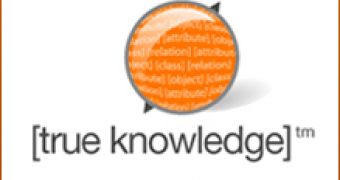In short, there's not going to be any natural language search because people are lazy and don't type in the entire question, but rather a couple of words that they would like to find in the answer. That's saying it grosso modo, Peter chose the more subtle approach of using carefully worded answers to the eventual questions that might have raised further.
I think that this concept of natural language search is basically the same as speech recognition: always coming up short, but nevertheless continually being funded because it sounds like the right thing to be doing at the time at hand. There are several search engines that try to prove this wrong and I've written about some in the past, but erm? it's not really there yet. I think the best way to deal with the problem is to roll them out together and have them interoperate. Get the mike, say the question and then let the search engine do its job. Not likely in the near future, this part, so let's just skip it with the master scheme.
In a Q&A with Technology Review, Peter Borvig says that "We [Google] don't think it's a big advance to be able to type something as a question as opposed to keywords. Typing 'What is the capital of France?' won't get you better results than typing 'capital of France'." While this is undeniably true, he admits that some value is still to be found in technology:
"We think what's important about natural language is the mapping of words onto the concepts that users are looking for. To give some examples, 'New York' is different from 'York', but 'Vegas' is the same as 'Las Vegas', and 'Jersey' may or may not be the same as 'New Jersey'. That's a natural-language aspect that we're focusing on. Most of what we do is at the word and phrase level; we're not concentrating on the sentence. We think it's important to get the right results rather than change the interface."
Oh, are the start-ups like true knowledge or Powerset going to get it?

 14 DAY TRIAL //
14 DAY TRIAL //